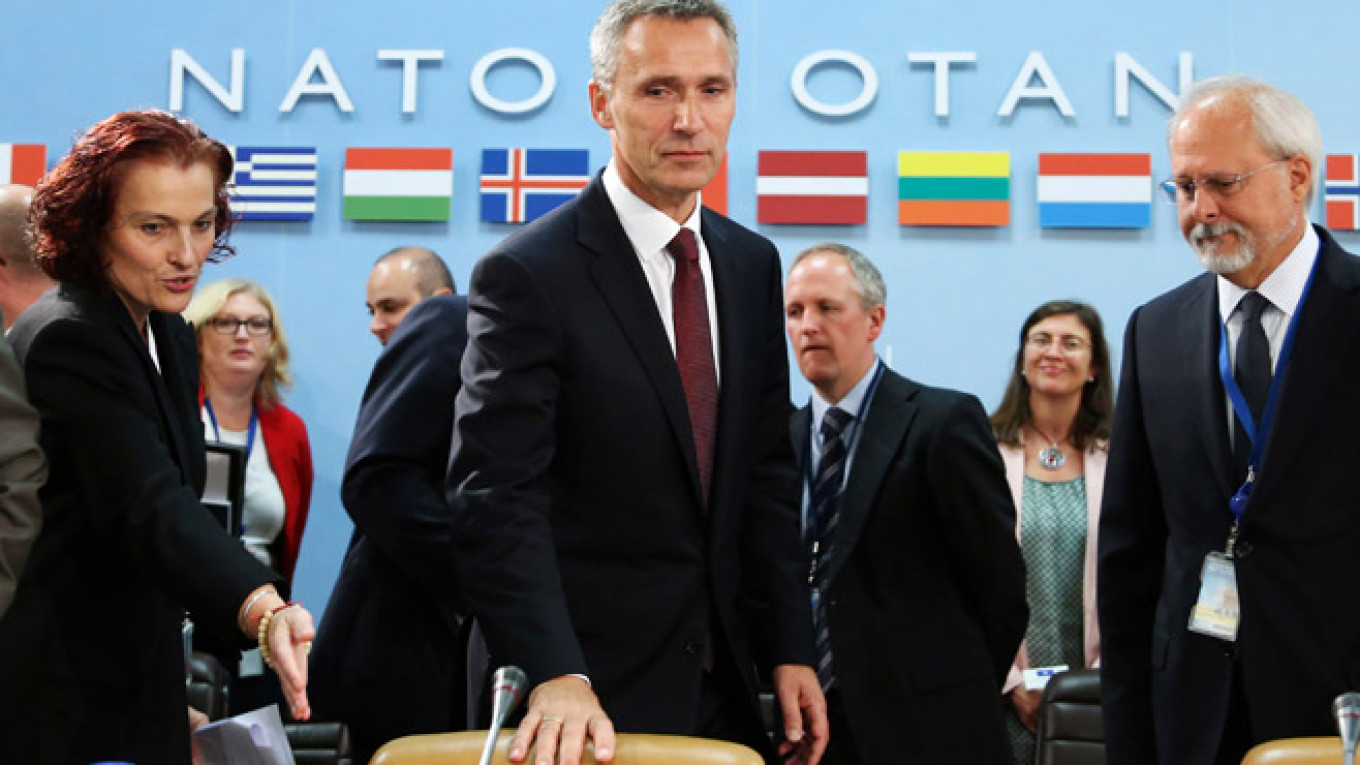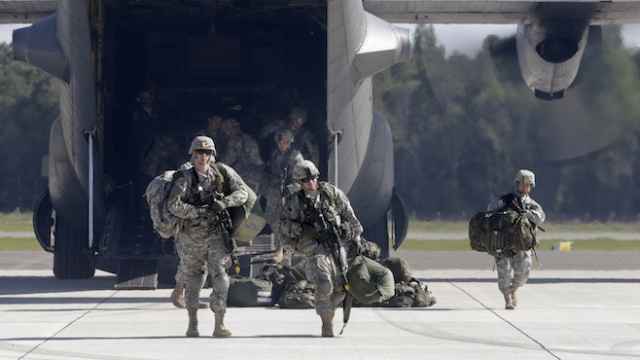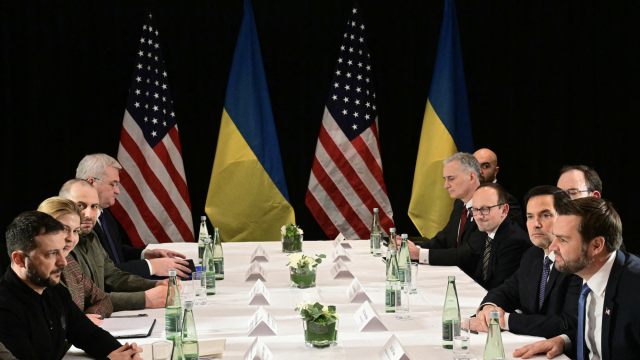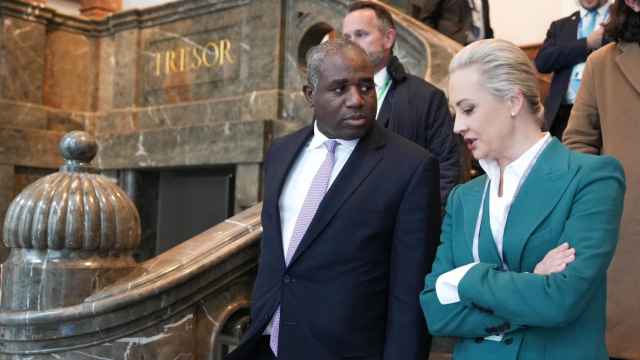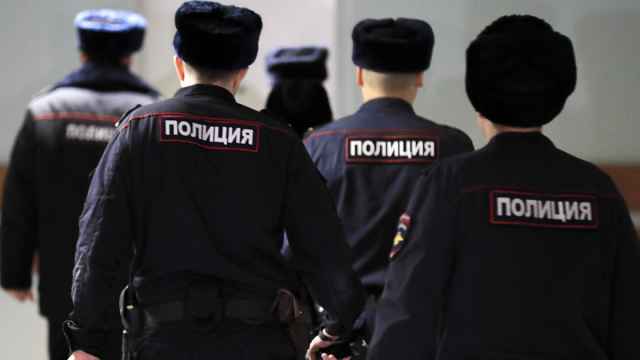At a time of daunting geopolitical crises, NATO is undergoing its own version of regime change, with the arrival of a new chief official who has the blessing, at least temporarily, of one of the West's biggest adversaries: Russian President Vladimir Putin.
Former two-term Norwegian Prime Minister Jens Stoltenberg started work Wednesday as NATO's secretary-general, the 13th in the trans-Atlantic organization's 65-year existence. And the key question is whether his consensus-building style will be more effective in tamping down the Ukraine conflict and other flashpoints than the hard talk of his predecessor, Anders Fogh Rasmussen.
"I expect more moderate language, and that he will try to keep the dialogue open," said Kristian Berg Harpviken, director of the Peace Research Institute Oslo, an independent Norwegian research institution.
To allies like Germany, the expectation of a dial-back of the rhetoric from Rasmussen — a former conservative Danish prime minister — was one factor arguing in Stoltenberg's favor.
Last month, Foreign Minister Frank-Walter Steinmeier, though squarely blaming the Kremlin for the continued crisis over Ukraine, said: "I found that some things that came out of Brussels, from NATO headquarters, in these last few weeks weren't always helpful."
Stoltenberg was unanimously chosen as Rasmussen's successor by NATO's policymaking North Atlantic Council in March. It was a pick that won swift if tentative approval from Putin, who had dealt with Stoltenberg when the 55-year-old Norwegian headed the left-of-center government of one of Russia's neighboring countries.
"We have very good relations, including personal relations," Putin said in an interview on Russian state television last spring. "This is a very serious, responsible person, but we'll see how our relations develop with him in his new position."
Traditionally, a European has headed NATO's civilian headquarters in Brussels, while an American officer holds the post of the alliance's supreme military commander, beginning with General Dwight D. Eisenhower in 1951-52.
Stoltenberg will be the first secretary-general to hail from an alliance nation that borders Russia. He becomes NATO's highest-ranking civilian at a time when Western relations with Moscow are at their lowest ebb since the collapse of the Berlin Wall a quarter-century ago.
Simultaneously, NATO member states are confronted with crises in Iraq, Syria and North Africa, the uncertain future of Afghanistan, and an array of security challenges ranging from the threat of cyber-attacks to pirates preying on commercial shipping in the waters off the Horn of Africa.
"As we all know, NATO is not just a security alliance. It is a family of values which reaches across the Atlantic and defends almost 1 billion citizens of our allied countries," Stoltenberg told a news conference at the NATO summit in Wales earlier this month.
"We must continue to stand up for those values," he said.
Stoltenberg, an economist by training, became Norway's youngest prime minister in 2000 the day after his 41st birthday, though he had to resign seven months later when his Labor Party took a beating at the polls. He joined the party at age 14 and was involved in Vietnam War-era street protests that sometimes ended with rocks being thrown at the U.S. Embassy.
In the waning days of the Cold War, when he was a promising young politician, the Soviet Union's spy agency tried to recruit him, but he reported the KGB's attempts to Norwegian authorities and did nothing wrong, Norwegian intelligence officials have said.
As premier, he became a recognizable face on the international scene with his sober, dignified response to the terror attacks that killed 77 people in Norway in July 2011. It was the worst atrocity since World War II to befall his small but proud country. For Norwegians, he said, it meant "hours, days, nights filled with shock, despair, anger and weeping."
Belying a dovish reputation, Stoltenberg pushed through an increase in military spending during his second spell as prime minister in 2005-13.
Stoltenberg has long been a staunch U.S. ally. He endorsed President George W. Bush's "war on terror" after the Sept. 11, 2011, attacks on the World Trade Center and Pentagon, backed the decision to send Norwegian troops to Afghanistan, and sent Norwegian units to take part in NATO's airstrikes in Libya.
As well as heading NATO's staff and chairing its policymaking council, a major part of the secretary-general's job is trying to broker agreement among the alliance's 28 member countries. Stoltenberg can boast of some international assignments, including serving as a United Nations special envoy on climate change and chairman of a high-level UN advisory panel on climate-change financing.
He is married with two grown-up children and is an avid biker and skier. Harpviken predicted that Stoltenberg will miss the informality of Norwegian public life, where he could strike up a conversation with a fellow cyclist or motorist as they both waited for the light to change on an Oslo street.
The analyst also said Stoltenberg has demonstrated that he has the skills needed to achieve effective unity at NATO at a time where the alliance must tackle security challenges on multiple fronts simultaneously.
"He rarely picks a conflict with anybody," Harpviken said. "He is a consensus maker. Not a visionary perhaps, but one who builds through small steps and minor measures."
A Message from The Moscow Times:
Dear readers,
We are facing unprecedented challenges. Russia's Prosecutor General's Office has designated The Moscow Times as an "undesirable" organization, criminalizing our work and putting our staff at risk of prosecution. This follows our earlier unjust labeling as a "foreign agent."
These actions are direct attempts to silence independent journalism in Russia. The authorities claim our work "discredits the decisions of the Russian leadership." We see things differently: we strive to provide accurate, unbiased reporting on Russia.
We, the journalists of The Moscow Times, refuse to be silenced. But to continue our work, we need your help.
Your support, no matter how small, makes a world of difference. If you can, please support us monthly starting from just $2. It's quick to set up, and every contribution makes a significant impact.
By supporting The Moscow Times, you're defending open, independent journalism in the face of repression. Thank you for standing with us.
Remind me later.


